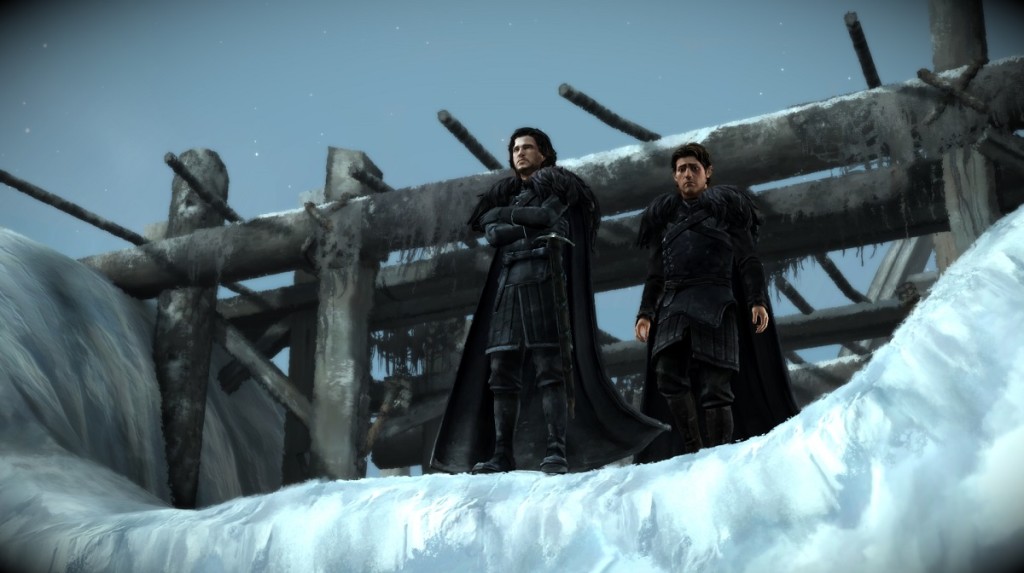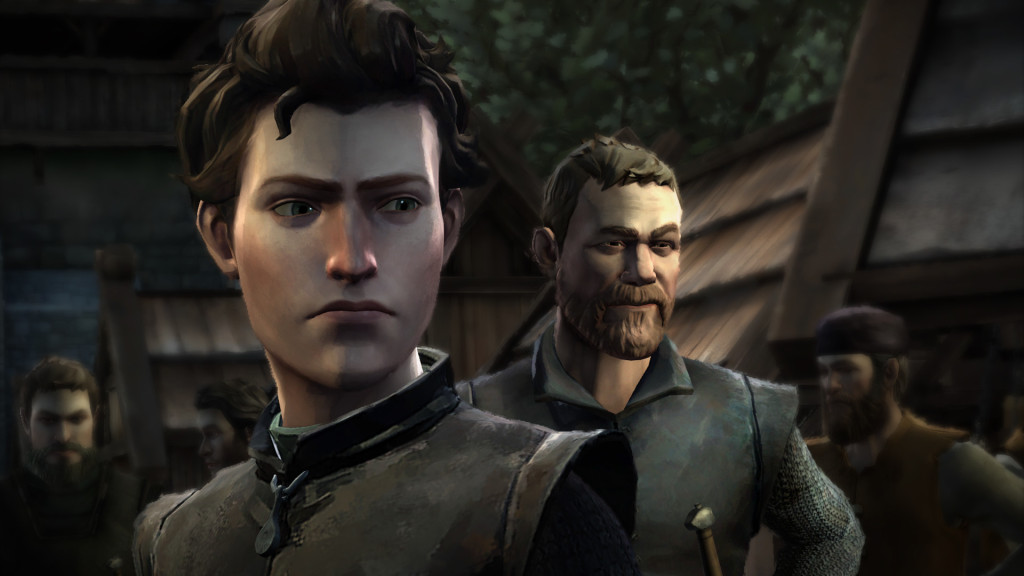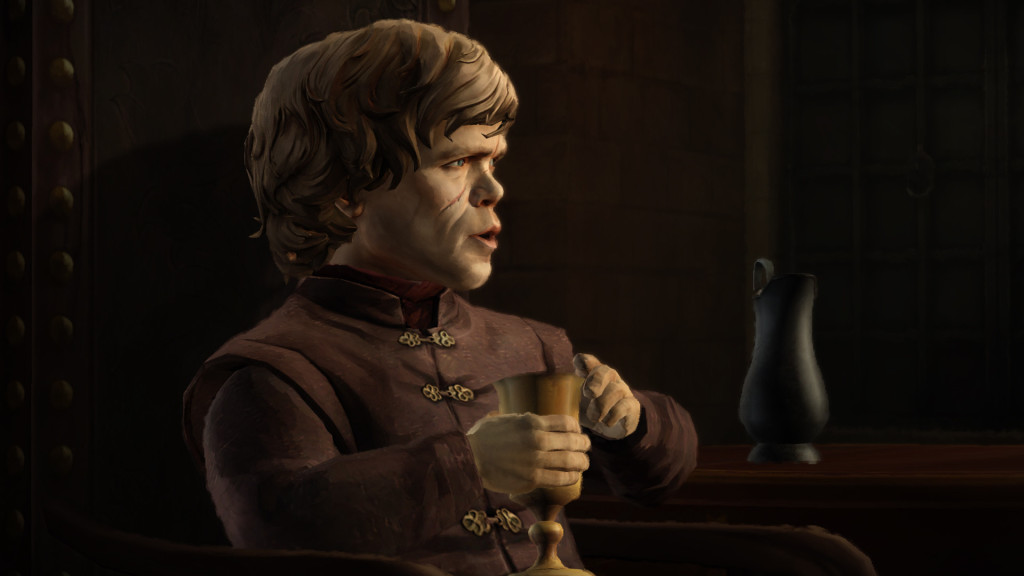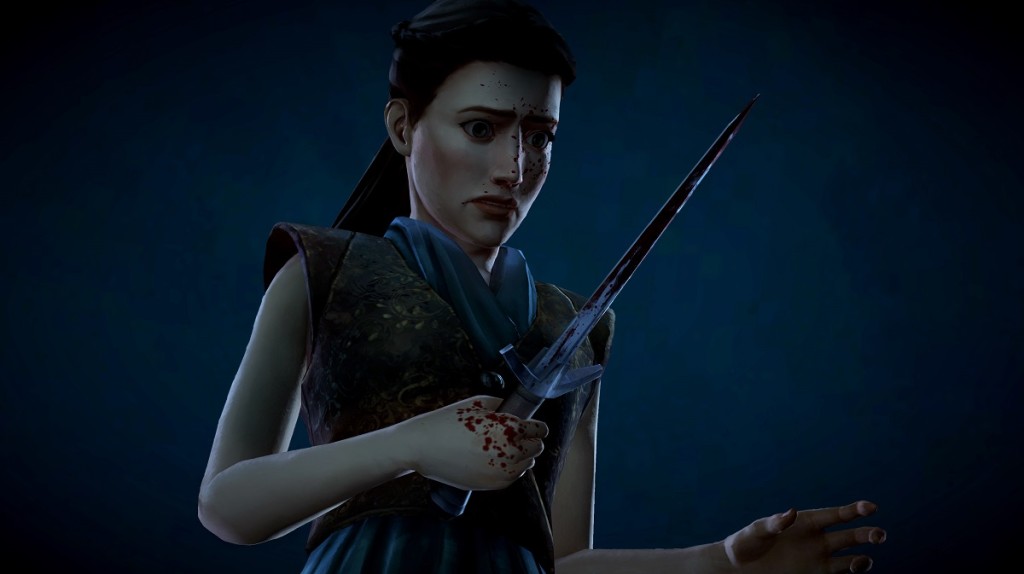
The HBO adaptation of George R. R. Martin’s A Song of Ice and Fire series captures the raw brutality of the world in such vivid detail that there have been many moments that made me physically turn away. When Telltale announced it was going to set a game in this universe, I was highly skeptical that it could replicate this feeling. So far in the first two episodes of Game of Thrones: A Telltale Games Series, I have been very impressed at how well it has captured the necessary violence and inhumanity while blending it seamlessly with the political intrigue so indicative of the series.
Smartly, Telltale decided to tell a story that is just slightly ancillary to the main arc being told through the established canon. The focus of the plot centers around the northerners of House Forrester, and it mainly surrounds them dealing with the fallout that occurs as a result of the various political maneuverings taking place between the third and fourth seasons of the series. In this way the story manages to feel central and important to the Game of Thrones universe instead of a side story, but also allows it to craft a new tale that doesn’t rely solely on its source material for content.

Already being familiar with Martin’s world is practically a prerequisite for playing this series, as it assumes an existing knowledge of the characters and conflicts right from the onset. The series begins at the infamous “Red Wedding” and references various political relationships that will completely blow by someone that is new to the Game of Thrones lore. Interestingly, I found the moments when I’m interacting with established characters to be heavily influenced by the feelings I had entering the game. When I need to decide who to trust, I find that I’m much more willing to side with certain characters based not on anything in particular that has occurred during the gameplay, but instead based on what I’ve seen them do on the over the last four seasons of the show.
One aspect of Game of Thrones that fits the Telltale style well is the fact that choices are never easy, and often all available options lead to a bad outcome. In this world, good doesn’t always win, and in fact doing the noble thing is often punished. Because I was already aware of how this world works, I found that I took many more risks and played much more sinisterly than I normally do in these types of games. In Westeros, there is no getting ahead without double-crossing someone, and information is the most priceless commodity. My usual style of “playing the good guy” just doesn’t cut it here, and I’ve had a lot of fun making choices that I know are somewhat twisted.

Telltale’s engine has been showing its age more and more as its various seasons have progressed, and it is especially noticeable here. The animations feel very off and the environments feel unbearably cramped. The entire game has an oil painting-like effect layered on top of the action which works well, but feels like an attempt to dress up dated visuals. The characters that are modeled directly off of the actors from the TV show are where the rough visuals are most noticeable, because they feel close but definitely not right. It actually evokes a strong uncanny-valley response while playing through their scenes.
Telltale has also been transitioning away from puzzles in its games, and Game of Thrones pretty much completes this move, as there have been zero puzzles to solve in either of the first two episodes. The entirety of the gameplay is in the conversation trees and these, while compelling, aren’t quite enough to engage me as they once did. I still think that Telltale is the master developer of this style, but even the master can’t keep playing the same tricks repeatedly without things feeling a little stale.

Beyond the visuals and the gameplay, Telltale’s audience typically show up for the story, and Game of Thrones has so far delivered well on this initiative. The Forresters feel interesting and sympathetic, and the villains of the story evoke repulsion merely with their presence. The plot twists have been exciting and shocking, and no character ever feels truly “safe” (aside from the characters taken from the show itself). In all, Telltale really does capture the vibe of Game of Thrones, and any fan of the HBO show will find a lot to enjoy.
I really like Telltale as a developer and I’m a big fan of Game of Thrones, but I’m not yet in love with this game series. The funny thing is that there really isn’t anything wrong with it, and in fact the plot is quite good, but it is truly time for the studio to attempt to innovate. For those that find themselves in the overlap of both fandoms (Telltale’s and Game of Thrones’) this title is definitely worth the time, but all others should probably take a pass.
Pros: Source material well captured, plot twists are exciting, choices are difficult
Cons: Animations and visuals feel very dated, lack of any gameplay beyond conversation choices



















